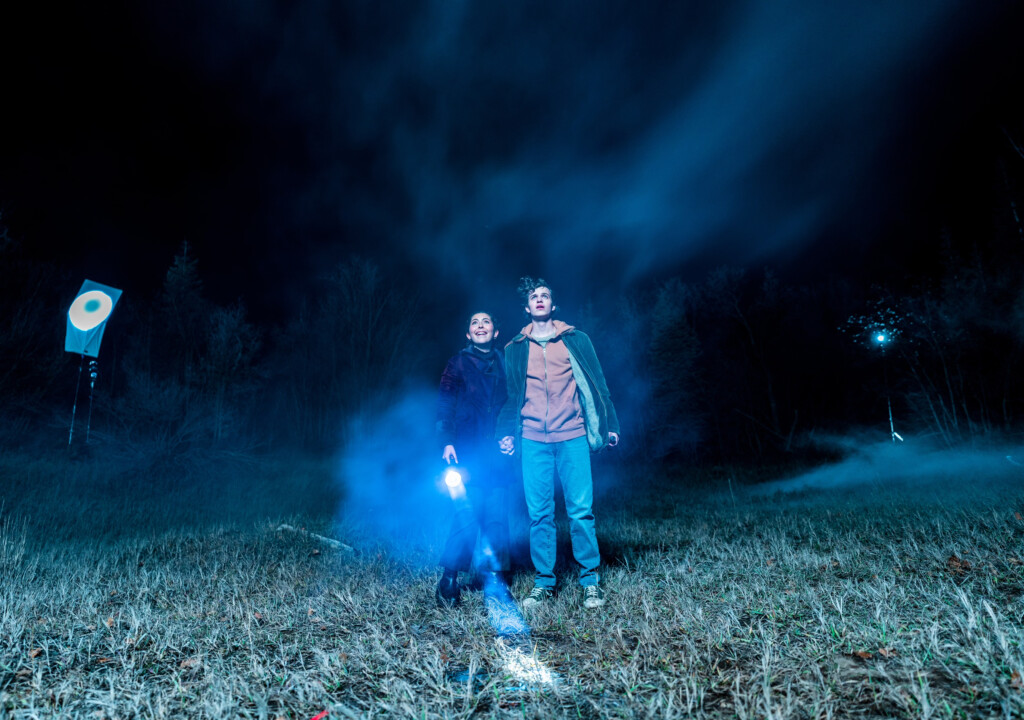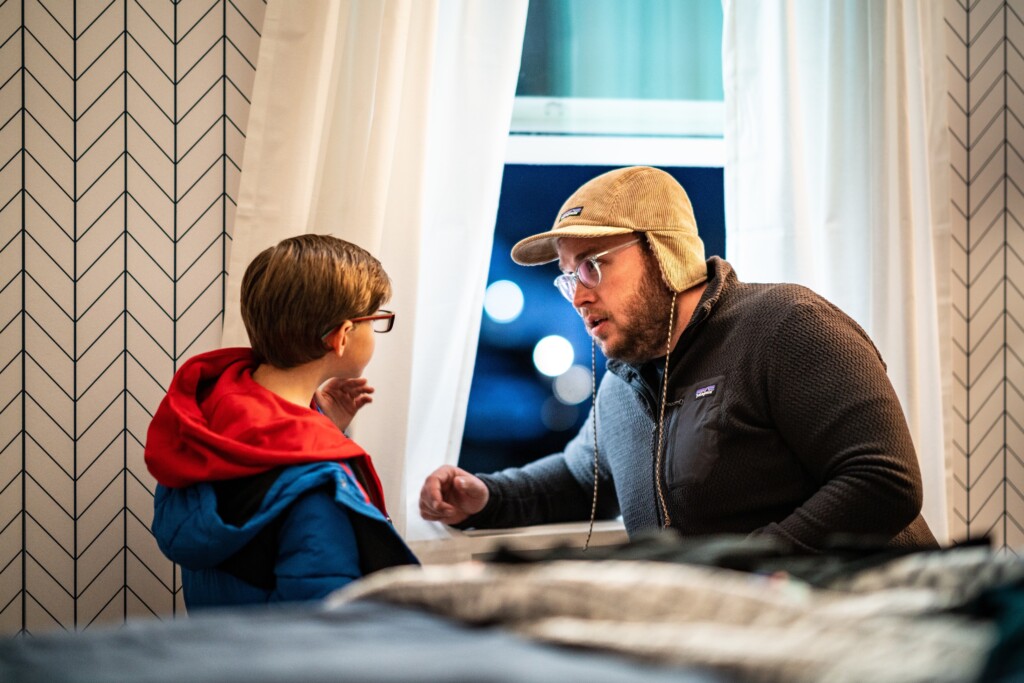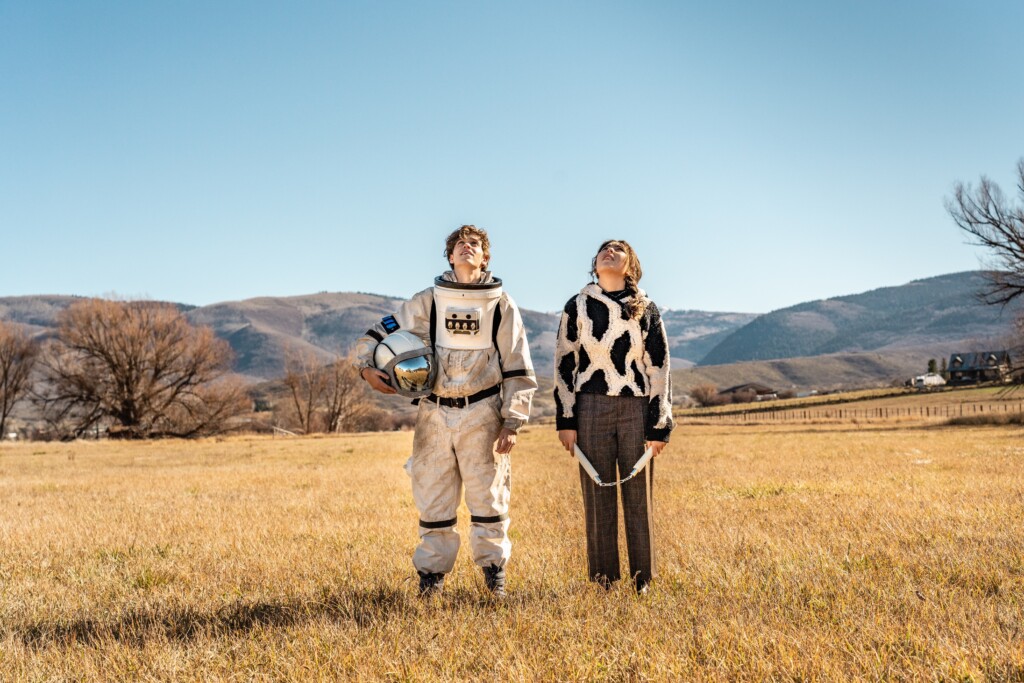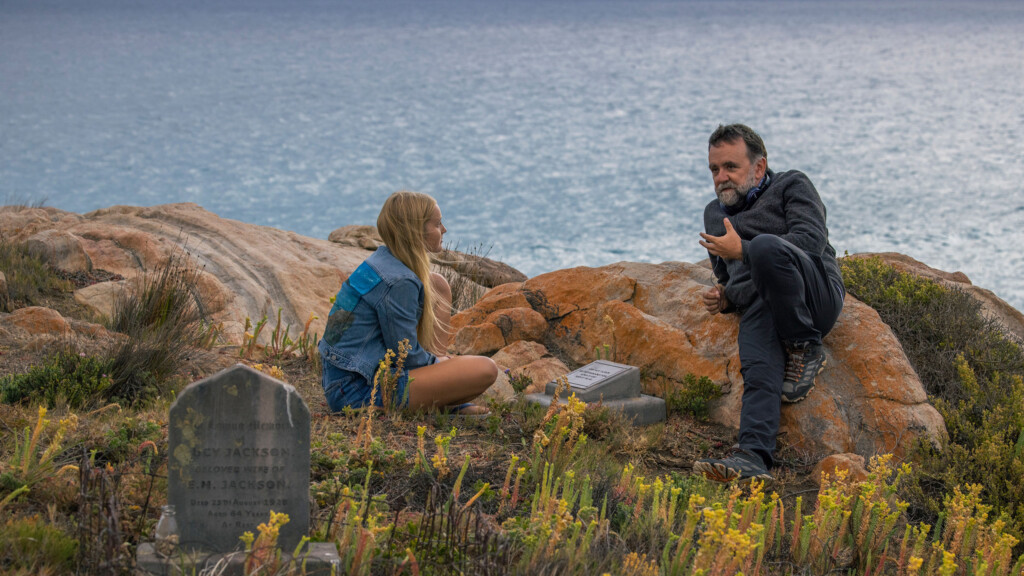EDITOR’S NOTE: Thomas Dugrosprez wrote the reviews and Les Roka added interview and background notes to the feature.
This year’s trio of Sundance Kids selections have something for virtually every young cinematic fan. In addition to the superb animation film The Amazing Maurice, which was reviewed earlier this week, there is the Utah filmed narrative Aliens Abducted My Parents and I Feel Kinda Left Out, directed by Jake Van Wagoner and written by Austin Everett, and from Australia, Robert Connolly’s adaptation of Tim Winton’s novella Blueback.
Aliens Abducted My Parents and I Feel Kinda Left Out
Making its debut in this year’s Sundance Kids program, Aliens Abducted My Parents and I Feel Kinda Left Out has a wonderful collection of parts that, in theory, should work together as a solid coming-of-age story à la Spielberg. It ends up being the ideally amiable selection for the Sundance Kids slate.
Following an intriguing opening scene led by an always game Will Forte, we are introduced to Itsy (Emma Tremblay), 17, seemingly at odds with her quirky, energetic family. That’s understandable: she has been uprooted in a typical coming-of-age trope from her big city home and longs to return once high school is over.

Enter Calvin, an odd yet always charming classmate who is convinced that his parents were, as the memorable title suggests, abducted by aliens. Jacob Buster and Emma Tremblay are true shining stars, with their chemistry palpable as we witness their love story blossom.
But not everything is as good as it seems. Itsy has lied about her reasons for developing a friendship with Calvin, hoping to use him as the basis for a journalistic competition that will grant her a scholarship in the big city. Tremblay encapsulates the teenage mind perfectly, intertwining doubts and regrets in an engaging, raw performance.
The cleverly titled Aliens Abducted My Parents and I Feel Kinda Left Out, running on the many usual coming-of-age beats it uses, manages to grab viewers’ heartstrings by being true and honest. Yes, Calvin is quirky, nerdy and definitely watchable. But the true ache of feeling abandoned by his parents grounds the movie and allows its characters to be messy and complex, just like any of us were at seventeen, just at the cusp of adulthood.

In a sharp, beautifully acted scene, Elizabeth Mitchell shows how messy parents can be as well. Here lies the true strength of the film’s story: it isn’t afraid to surprise viewers with an emotional gut punch. How does one reckon with the fact that maybe all they’ve been led to believe has been a lie?
The film is about growing pains, yes, but deep down it also is a movie about family. And, the realization emerges, when we compare the identity of ourselves, which we actually grow into, and the identities we strive and hope to build that will stick. As Itsy, her younger brother and Calvin go on their road trip to Montana, we are right there with them in that van, living vicariously the freedom which emanates from their fingertips, all blissfully naive and content to absorb the moment without any disturbance.
Although the plot is generally formulaic and relies a bit heavily on its cinematic influences, the film stands out as a light-hearted, enjoyable journey for kids who feel like they don’t belong. All it takes sometimes is kindness, empathy, and a little bit of camp.
As mentioned earlier in The Utah Review’s festival curtain raiser, the first feature length collaboration between director Jake Van Wagoner and screenwriter Austin Everett was a serendipitous match from the outset. And, with the film being entirely shot in Utah and featuring professional production crews from the state, the project was qualified for state tax incentives in the program overseen by the Utah Film Commission. “We were on the same page 98% of the time, which is rare on any film production,” Van Wagoner said in an interview. Everett added, “a big part of that came from the fact that we both grew up in the same age when films like Back to the Future, E,T. and Jurassic Park came out. We have the same tastes in humor and dramatic storytelling so it was easy to become like-minded friends in the creative process.”
That voice comes through the charming innocence of their film’s story arc. Calvin can be a wacky character, making it difficult to believe his story about his parents being abducted by aliens. Everett says this was important to put the right emotional beats in the story because Calvin yearns to get out of the small town and explore the world — a concept that can be emotionally important especially to the film’s youngest viewers. “And just like the films we enjoyed as kids, we wanted a story to touch the hearts of kids who come to the theater to see our film,” he adds.

The film features the gorgeous Utah landscape and locals will recognize sights of Wasatch State Park, Rocky Mountain Middle School in Heber City, and the old Echo Cafe in Kamas.
Van Wagoner tapped Michael Lee Bishop, a musician and composer who splits his time in Utah and California, to write the score. The director wanted the film’s score to reflect the sweeping orchestral sounds of the films they loved. “When I looked at the script, I was really impressed by it and I started thinking about musical motifs and ideas well before I received the locked cut,” Bishop says in an interview. “Just reading Austin’s [Everett] script, I could hear the sound of themes start playing out in my head.”
As for character motifs, Bishop scored music for Calvin and Itsy together, since the characters always appeared like that on screen. Another was for Calvin and his father.
Bishop, a saxophone player who grew up playing a lot of jazz and played in numerous rock bands especially when he was attending the Pacific Northwest Film Scoring Program at the Seattle Film Institute, says that he has enjoyed the emphasis on composing soundtracks for film. Among recent credits are Maclain Nelson and Stephen Shimek’s Once I Was Engaged; Samuel Gonzalez Jr.’s Battle Scars and Thomas Hennessy’s Another Time.
Blueback
Blueback, Robert Connolly’s adaptation of Tim Winton’s 1997 novella of the same title, feels like a laid back, quieter companion piece to this year’s Avatar : The Way of Water, in the best ways. Both movies deal with parents and children in conflicting viewpoints. They also showcase beautiful underwater shots, and have a large fish as the catalyst for the lead character’s growth. Truth is, Blueback shows that when it comes to storytelling, rawness is sometimes the way to go.
Blueback tells the story of Amy (Mia Wasikowska), a recluse marine biologist who must return home to care for her ailing mother Dora (Rahda Mitchell). We then follow two parallel timelines as Amy recalls her childhood and how her meeting with the titular Blueback made her the woman she is today.
Amy’s relationship with the environment is deeply intertwined with the bond she has with her mother. Mitchell chews through the scenery with a hunger and acting prowess that will not leave the viewer indifferent about her character. Although she was born and raised near the Australian waters, young Amy (Ariel Donoghue and then Ilsa Fogg, both superstars in the making) is not as comfortable as her mother when it comes to diving and facing her fears. To push her into overcoming them, Dora throws her late husband’s ring overboard, almost as a lighthearted gesture. This is when Amy meets Blueback, a state-of-the-art animatronic puppet, whom she swears she will protect for the rest of her life.
Connolly’s writing of these two opposite personalities shines brightest, when mother and daughter are on screen together, either fighting the corrupt businessman trying to make a profit off the coast or struggling to communicate through growing pains. This very struggle takes center stage, as the older Dora loses her speech following her stroke and Amy tries her best to get a reaction out of her by showing her various memories and trinkets, efforts which end unsuccessfully. Eric Bana stars as the diver Mad Macka.
In a prepared statement, Winton explains the impetus for writing the novella more than a quarter century ago:
The inspiration for Blueback came from me moving from a small country town by the sea, so that my kids could go to school in the city. I think I was mourning the proximity to the shore
and to the sea, to the natural world that was just so immediate. I’ve been a water person all my life. At that stage in my life, in my 30s, I started to actually wake up to the fact that depletion of the oceans was something that I was participating in quite vigorously. Everything I learned about the ocean was at the end of a spear or a hook. And I became interested in marine conservation in the early 90s and got very active – all of a sudden being conscious of the fragility of our natural state, particularly, of the oceans.
Eventually, Amy’s personality sharpens, which differs from that of her mother, who has a hard time losing her only family to the world. Where Dora is pragmatic and impulsive, Amy becomes more intuitive, aching for an education that will help her save the ocean in the long run. Blueback has a very simple message about the environment and the human condition but Connolly’s directing is so evocative that it is hard not to be charmed and transported by his sincere plea for nature’s preservation.
Ultimately, Blueback is a marvelous feast for the eyes and a heartfelt tribute to the power of community. As Amy reconnects with her former friends and the land she was raised in, she revealsthe many ways love and care manifest themselves. It is not an action-packed movie, but it is beautifully contemplative and sometimes outright funny, for all ages, daring us to find our own Blueback and defend.
For more information about festival screenings and tickets, see the Sundance website.



1 thought on “Sundance 2023: Appealing family fare in Sundance Kids selections include Blueback, Aliens Abducted My Parents and I Feel Kinda Left Out”